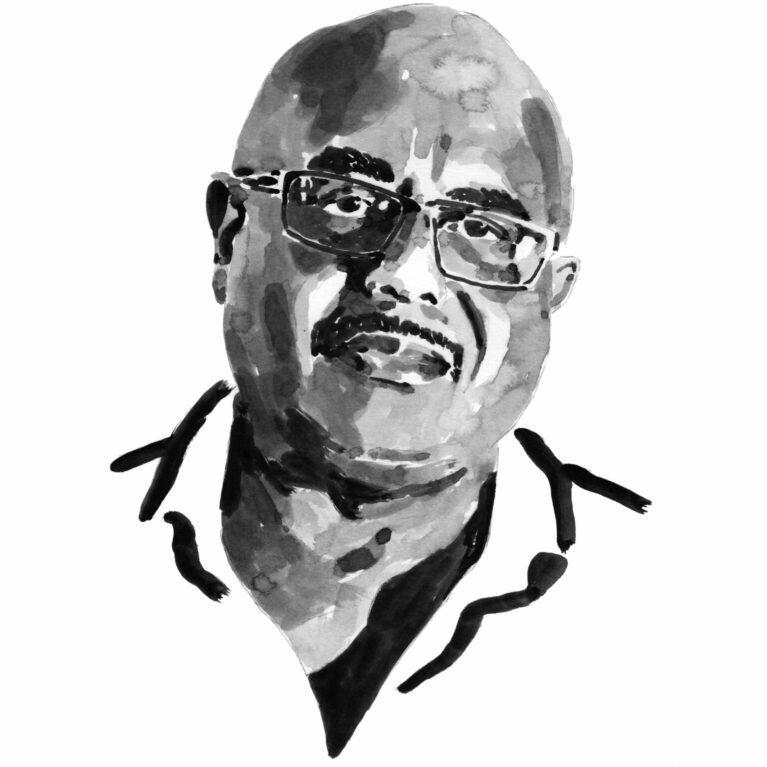Environmental education in the Seychelles
Terence has been running the Wildlife Clubs of Seychelles and working with the Unisey Centre for Environment and Education (UCEE) for many years. He is a long-standing grant recipient from the Foundation. His work has been to make the wonders of the natural world, and the incredible heritage of Seychelles, available to children and young adults. By learning and immersing themselves in nature, Terence hopes to guide children to the best environmental solutions and help older youth on a path to study the natural world at university.
As an environmental educator, I run the Wildlife Clubs of Seychelles and provide environmental learning programmes for young people in the community. I spent my own childhood in the fascinating natural environment of Seychelles island life, exploring river courses, mangrove swamps and the sea. As I grew older I wondered how these granitic islands, with their lush vegetation, beautiful beaches and plenty of fish and other marine life, came to exist. This led me to become involved in activities and studies that have to do with the natural world: ecology, biodiversity conservation, sustainable development, education and community outreach, communication, media...
- Increase knowledge of Seychelles’ marine and terrestrial biodiversity and mobilize conservation actions for the youth of Seychelles.
- Identify and take action to solve environmental problems in Seychelles through research thesis by Unisey students.
- Develop activities, events, and publications that focus on the natural world
- Improve capacities for Unisey students (BSc Programme) undertake successful programmes and activities.
To the entire challenging conservation problem Seychelles have encountered – protecting rare species, winning support for legislation, restoring rivers, cleaning up a beaches and other wetlands ecosystem, or sustainably management of our native forest. Inevitably, people are part of the problem and public education and outreach are essential and critical for the Unisey Centre for Environment and Education (UCEE) to address in the long term. Therefore effective education and outreach are essential for promoting conservation policy, creating (grass root) knowledgeable citizens and changing people’s behaviors.
The Unisey Centre for Environment and Education (UCEE) provides fieldwork opportunities by introducing visitors to rivers, mangroves and marine ecosystem (sea grasses, coral reef) throughout presentations, workshops, displays and field trips. The UCEE caters for day visits from students at all levels of schooling and reflects the UCEE Environmental Education capacity for schools and youth groups requirements.
Unisey Environmental Science Program have the aim of enabling students to develop a personal response to the environmental challenges they encounter in Seychelles, in the region and beyond. Another aim is to obtain the skills needed in the field of environmental sciences operated at the Unisey Environmental Education Centre. UCEE also provides a broad range of services and programs to schools so as to build environmental awareness with the aim of supporting the development of sustainable schools and to prepare students for the future environmental challenges that societies face.
Therefore to achieve the above, systematic planning, implementation and evaluation are the core focus for the UCEE mission for effective education and outreach programs. Many activities and special events have been successfully carried out. The successful approaches in the long term will be more focused on environment –based education, education for sustainability, and action projects for the schools visiting the UCEE. As a result of these visits, students acquire the principles at their school based clubs wildlife clubs and the eco school projects. Partnership with other environmental organization, agencies, ministries and other scholar institutions has created effective conservation education in the UCEE since 2013 till date. However despite the dedication to develop conservation education programs at the UCEE to help school and youth groups understand environmental issues and develop an ethic that will support a host of conservation behaviors, it is difficult to measure program success by actual behavior changes. This is especially in regards to moving people to and from “awareness to action” which is not a simple task.
- Gain a broad and multidisciplinary knowledge of environmental science, allowing the students to progress to a more specialised understanding in a niche field of study through postgraduate study
- Acquire the knowledge and skills and attitudes that enable adaptation to scientific, technology and social change
- Develop abilities in applying appropriate knowledge, analytical skills and tools to solve environmental issues

